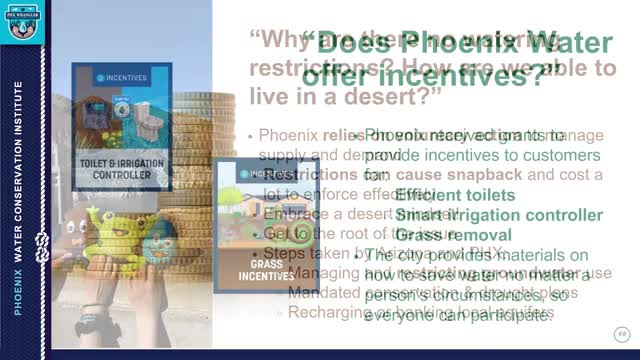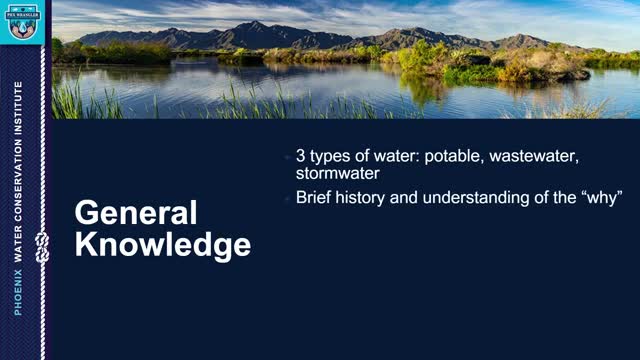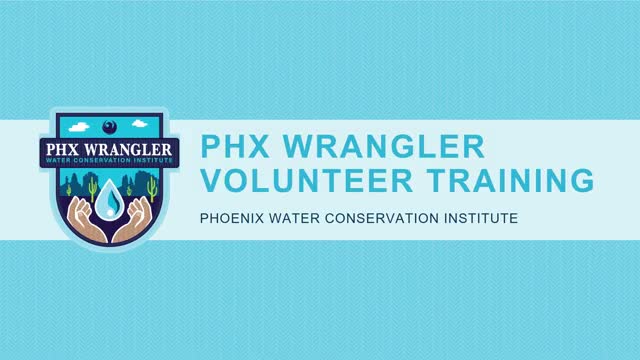Article not found
This article is no longer available. But don't worry—we've gathered other articles that discuss the same topic.

Phoenix Water training outlines rebates, free efficiency consultations and how residents report leaks

Trainer underscores Phoenix water sources, drought versus shortage and 'desert mindset' in volunteer lesson

